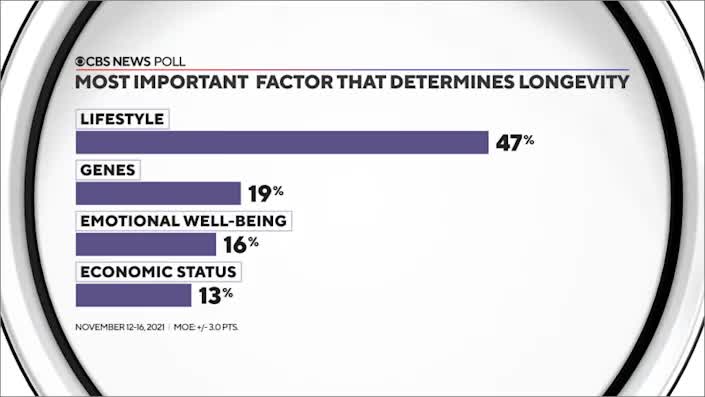Lifestyle is the top choice across demographic groups, including age, gender and education. Although those over age 45 are a bit more likely than those who are younger to say a person’s genes are the most important factor in determining how long a person will live.
But what is considered old anyway?
Most Americans would not want to live forever even if they could
If it were possible, would you want to live forever? Most Americans would not, but a third of Americans say “yes” — they are on board for eternal life.
Living forever is less appealing to older Americans than it is to those who are younger. Nearly half — 46% — of those under age 30 would live forever if it were possible, but that figure drops to 26% among those ages 65 and over.
If not forever, what about 150 years old? Thirty-seven percent of Americans believe it is very or somewhat likely that within the next 100 years, some people will be living to the age of 150. Although most do not think it’s likely people will be reaching their sesquicentennial within the next century.
If not forever, what about 150 years old? Thirty-seven percent of Americans believe it is very or somewhat likely that within the next 100 years, some people will be living to the age of 150. Although most do not think it’s likely people will be reaching their sesquicentennial within the next century.
Women are more than twice as likely as men to say they would consider cosmetic surgery to attain a more youthful appearance. And it is women between the ages of 30 to 44 who are the most likely to consider cosmetic surgery.
The CBS News survey was conducted by YouGov using a nationally representative sample of 1,650 U.S. adult residents interviewed between November 12-16, 2021. This sample was weighted according to gender, age, race, and education based on the U.S. Census American Community Survey, and the U.S. Census Current Population Survey, as well as 2020 presidential vote. The margin of error is ± 3 points.

